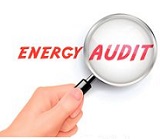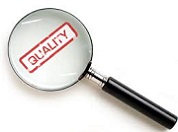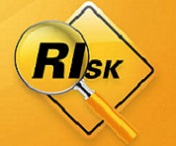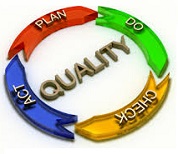Auditing
The opportunities to improve energy use with maximum efficiency in the industrial sector are significant but also challenging. Industrial systems are complex and require a systematic approach to improve their performance. We are providing solutions to improve productivity of your industry in several different ways.
Our services
Energy audits
In these days of uncertainty, it is important to keep operating expenses to a minimum. One difference between companies that weather these difficult times and those which do not survive, will be that the survivors will have reduced their unnecessary expenditures before it is too late.
Unnecessary costs include costs for energy you don’t need to use. In the past many companies have just considered utilities as “a cost of doing business.” By running an inefficient building, you are overpaying your utility for energy. It just doesn’t make any sense.
A good building energy audit will point the way to reduce your energy costs by 10% to 40%. For large organizations, this can be substantial, and could mean the difference between staying afloat and going under.
The term energy audit appears to refer to two distinct things: An energy audit is the process of having a professional energy auditor assess your building for energy savings opportunities. The term energy audit also is used to refer to the result of the energy assessment process, the energy audit report. We will try to keep these terms separate by referring to the report as an “energy audit report.”
An energy audit report is a carefully thought out plan, which, if followed, will lead you to reduced energy costs. Every building is different, and each contains different opportunities which can reduce energy usage. This is why every different building requires its own unique energy audit.
During the energy audit, an energy auditor will visit your site and interview your facility manager, inspect your lighting, air conditioning, heating and ventilation equipment, controls, refrigeration, air compressors, water consuming equipment, and anything else that is using energy. Depending on the type of the audit, the auditor may take measurements of temperatures, pressures, light levels, power draw, and other things.
An energy audit report typically contains a description of the building’s existing energy consuming equipment, an energy balance and most importantly, a presentation of feasible energy conservation measures (ECMs).
Quality management Audits
The purpose of a quality audit is to assess or examine a product, the process used to produce a particular product or line of products or the system sup-porting the product to be produced. A quality audit is also used to determine whether or not the subject of the audit is operating in compliance with governing source documentation such as corporate directives, federal and state environmental protection laws and regulations, etc. A quality audit distinguishes itself from a financial audit in that the primary objective of the financial audit is to verify the integrity and accuracy of the accounting methods used within the organization. Yet, despite this basic difference, it is important to note that many of the present-day quality audit techniques have their traditional roots in financial audits.
Risk Assessment Audits
As part of managing the health and safety of your business you must control the risks in your workplace. To do this you need to think about what might cause harm to people and decide whether you are taking reasonable steps to prevent that harm.
This is known as risk assessment and it is something you are required by law to carry out.
A risk assessment is not about creating huge amounts of paperwork , but rather about identifying sensible measures to control the risks in your workplace. You are probably already taking steps to protect your employees, but your risk assessment will help you decide whether you
have covered all you need to.
Process improvement Audits
A process audit is an examination of results to determine whether the activities, resources and behaviours that cause them are being managed efficiently and effectively. A process audit is not simply following a trail through a department from input to output - this is a transaction audit. Processes generate results therefore for an audit to be a process audit it has to establish
whether the results are being generated by an effectively managed process.
An effective process is one that achieves the results that are intended – i.e. the objectives. An effectively managed process is a process in which the activities, resources and behaviours are planned,
organized and controlled in a way that the outcomes meet specified objectives.





 0774797251
0774797251



